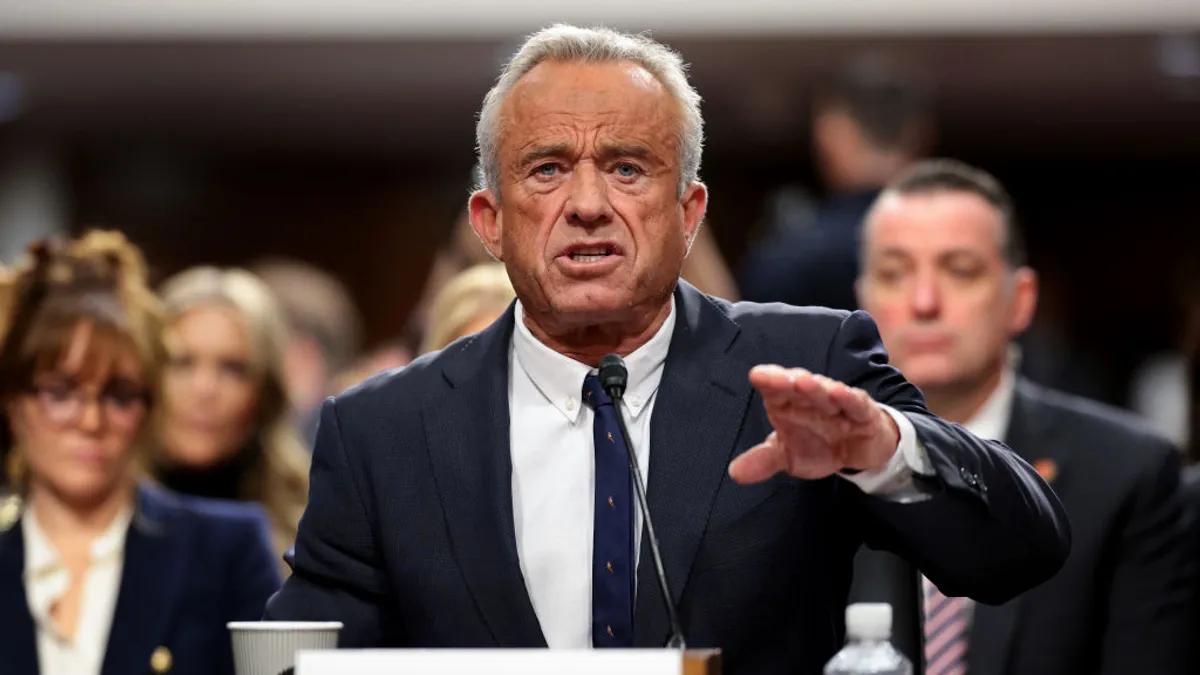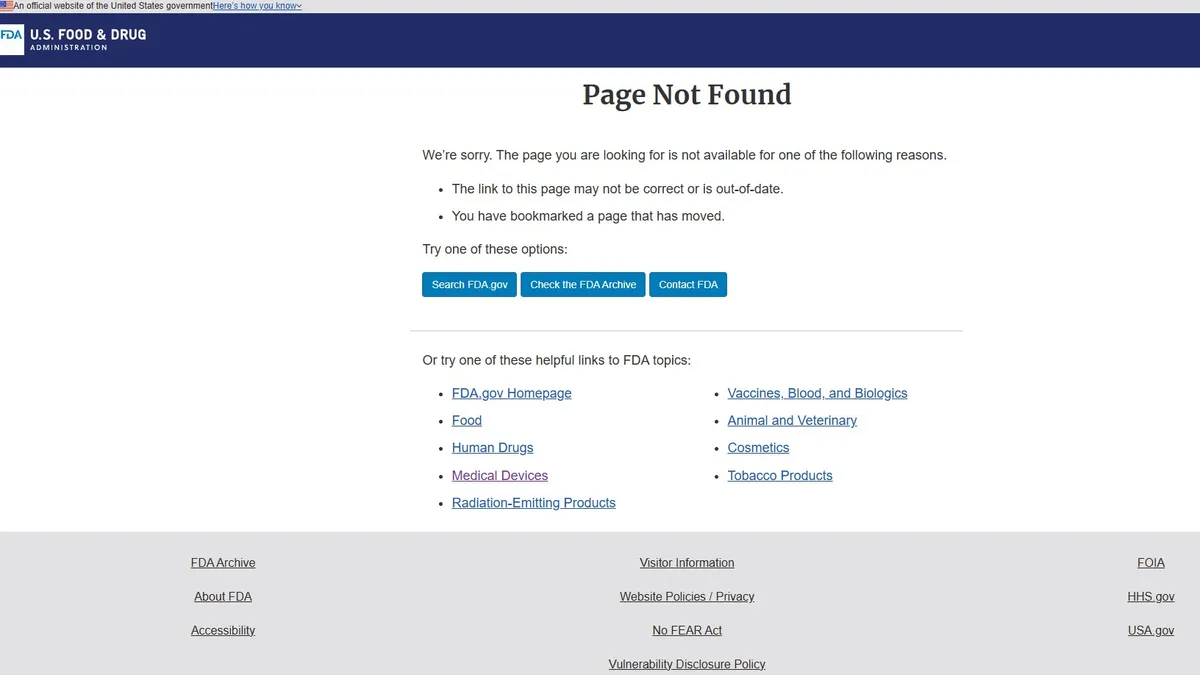The Food and Drug Administration is considering changes to how it solicits input from advisory panels, even as the agency’s credibility has been strained in recent years by several high-profile cases in which it overruled those same experts.
Commissioner Robert Califf has, over the past few years, suggested the agency could do away with voting during advisory committee meetings to help curb confusion over the panels’ role in its decisions. Earlier this summer, the FDA held a listening session asking stakeholders how the agency can improve the committee process.
Advisory committee members have since weighed in. 3D Communications, a consultancy firm with clients who appear before and on these panels, surveyed 400 former and current committee members on the recommendations that came out of the listening session.
The survey made clear that panelists see value in voting on recommendations concerning an experimental product's benefits and risks ahead of an FDA decision. Nearly all, or 95%, said the FDA should continue to have voting questions.
The FDA has 50 technical and scientific advisory committees that review drugs before regulators make their final decision. The subject matter experts review drug information and then vote on their recommendation. Although their vote is non-binding, the FDA follows their advice around 80% of the time, according to a study published in 2019.
Committee controversy
The reform talks come in the wake of several contentious drug approval decisions, most notably the FDA’s 2021 clearance of Biogen and Eisai’s Alzheimer’s disease drug Aduhelm. Controversy around the drug, and subsequent slow uptake, led in part to the companies’ decision to withdraw it from market.
Aduhelm’s road to market was irregular and the agency’s approval so rankled an advisory panel it had tasked with reviewing it that three committee members resigned afterwards.
“[The three resignees] were very vocal in the press, and it brought into question the utility of the advisory committee meetings,” said Jim DiBiasi, co-founder of 3D Communications.
Since Aduhelm, the FDA has also cleared drugs for ALS and Duchenne muscular dystrophy in decisions that divided experts.
During the recent listening session, the FDA sought discussion on how it could reverse the “misconception” that advisory committee votes are binding on the agency, as well as how to improve the public's understanding of the committees’ function.
“Although all decisions are made by FDA staff, the discussions that take place at advisory committee meetings are important pieces that are considered as part of the FDA’s decision-making,” FDA principal deputy commissioner Namandjé Bumpus, said in an April statement.
However, some experts believe the FDA is not making full use of its advisers to meet these goals. The agency failed “to note the advisory committee recommendation and how this may have contributed to the final decision” in some 2020 and 2021 drug approvals, according to Reshma Ramachandran, an assistant professor at the Yale University School of Medicine and first author of an analysis of the FDA’s June listening session.
“We believe this failure to acknowledge or explain such a key part of the agency’s decision-making process represents a missed opportunity to build and maintain trust,” Ramachandran wrote.
Califf has also indicated he doesn’t think all circumstances are appropriate for voting, and that recommendations could instead be gathered through the committee’s discussion.
Reform questions
Addressing conflicts of interest among panelists has also long been part of reform talks. There are concerns among some that current rules block top experts from participating in reviews. Currently, the FDA avoids using experts who have financial conflicts of interest with drug sponsors, although the agency can issue waivers to bring in more members.
In the survey, 90% of advisory committee members agreed that subject matter experts who have conflicts of interest should be allowed to participate, although most also agreed they should do so as a non-voting member. And some members responded that perceived conflicts should be assessed on a case-by-case basis.
“Especially in the area of rare diseases and ultra-rare diseases where there might be 10 subject matter experts in the world, and for a sponsor to walk into an advisory committee meeting and not have any subject matter experts because they're all conflicted. … It's really a disservice [to] public health,” said DiBiasi.
Industry groups are also in favor of loosening rules around conflicts of interest to ensure top experts are evaluating new drugs. Flexibility and transparency around these conflicts could strengthen advisory panels and the FDA’s image, they attest.
“Despite recent expansions in the number of [advisory committee] members, there remains a shortage of experts in areas such as rare disease, clinical trial innovation and emerging technologies who are either available or considered eligible to participate in [a committee],” PhRMA wrote in its comments to the FDA inAugust.
Lykos Therapeutics, which recently received an FDA rejection for its MDMA-assisted therapy for PTSD, also commented that committees should include at least one patient or caregiver with lived experience of the disease — separate from the consumer representative.
Changes are likely to come in the future, according to Dibiasi, who also spoke at the listening session. “To the FDA’s credit, they’re listening,” DiBiasi said.
























